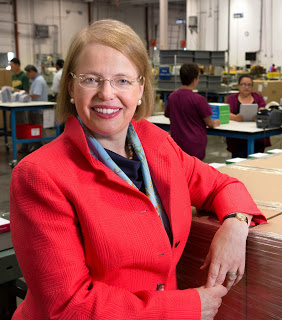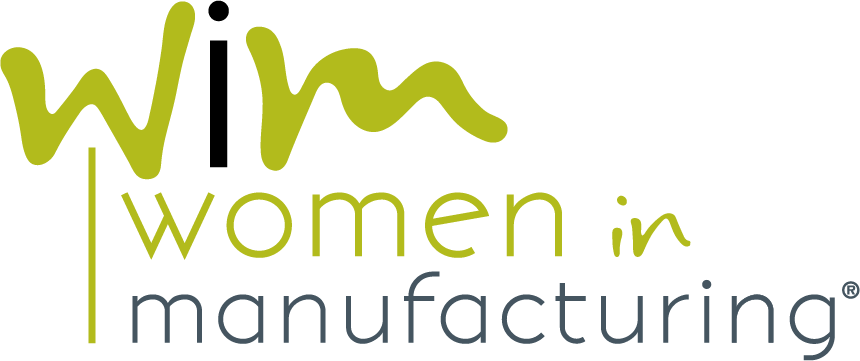Hannah Kain, CEO of ALOM

Hannah Kain, CEO of ALOM
#WiMHearHerStory | @WomeninMFG

At Women in Manufacturing, we are committed to supporting women in the manufacturing sector. We firmly believe that mentorship and community-building will help attract and retain women in manufacturing. As part of our mission, we feature on our blog the stories of women we admire who are currently working in manufacturing. The following is the latest installment of our "Hear Her Story" series.
Please tell our readers a little bit about your job and what your work looks like every day.
I love my job as the CEO of ALOM. Every day is different; almost every day is fun and interesting. I can use my personal strengths and hire excellent staff to cover my many weaknesses to ensure that we stay true to our promises. My job is about alignment and making sure that we always have the very best people executing great strategy. I also have the pleasure of being on several boards, including National Association of Manufacturers, WBENC and Watermark.
How did you arrive at your current position? What attracted you to a career in manufacturing?
I have worked in several manufacturing companies – some small and some very large. It gave me the opportunity to appreciate the joy of creating great products in the smartest way possible and with excellent quality. Supply chain has been a fascination since childhood and that is frankly before supply chain was a common concept.
At WiM, much of our work is dedicated to refuting outdated stereotypes about the manufacturing sector: stereotypes like the workplaces are dirty and dangerous and that the field and skills required are a better fit for men. Have you encountered stereotypes like these in your education or career and how did you overcome them?
Yes, I have had to overcome stereotypes and prejudice. When it happens, I focus on not becoming a victim; I simply move on. I have found that – over time – the bigots are the losers and the victims of their own prejudice. As an example, I encountered prejudice from a possible supplier, and they lost what developed into more than a $10 million contract. I believe it is dangerous to underestimate other people. When prejudiced business connections have underestimated me, it rarely has worked out to their advantage.
Research shows that women, especially women in STEM fields, do better if they have a mentor. Has mentorship played any role in your career?
I was in politics early in my career and learned from being around great leaders. I have also learned from people I worked with. I learn from my staff and other business leaders every day. Learning and curiosity are part of my DNA, and it needs to be for any business leader who does not want to be left in the dust. I also have had a personal coach for close to 15 years.
One of the key findings in WiM’s survey is that there is significant overlap between what young women want in careers and the attributes of careers in manufacturing today. But the survey also found that, too often, young women are not aware of the opportunities available in manufacturing. What do you think can be done to spread the word to women about career options in modern manufacturing?
We need to talk about the satisfaction of building products that help people and that do good. We should talk about the difference you can make in manufacturing; making it sustainable and supporting middle-class jobs in the community and changing the workplace into a place of satisfaction and personal fulfillment. We should also talk about different career options and show the modern work environment. Our jobs truly are not about shoveling coals into a hot furnace, but about use of technology, collaborating and creating.
Our survey also found that the majority of women in manufacturing today would recommend the sector to young women considering career options. Would you recommend a career in manufacturing? And, if so, why?
I believe women can and should have great careers in manufacturing; many young women believe that only humanities lead to personal satisfaction. I have found that creating products and getting them in the hands of consumers brings great personal satisfaction; it requires team-work and often global collaboration, as well as ingenuity, knowledge and vision. Not to mention that manufacturing jobs are well paid. We still need to convince parents and counselors that it is a great choice.
